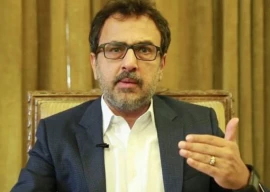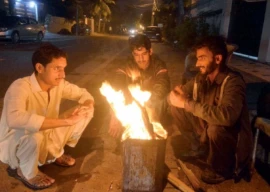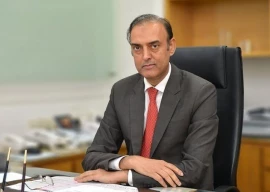
The Election Commission of Pakistan (ECP) on Friday rejected the nomination papers of 18 candidates for a variety of reasons. Interestingly, half of them intended to contest the Senate elections independently.
Officials said they failed to fulfill the legal requirements for qualifying to contest the elections under the ECP’s electoral rules. The ECP also issued a final list of all candidates after completing the scrutiny process, held from February 16 to 17. There are 166 candidates in the fray against 54 seats in the Senate.
The nomination papers of Dr Mazhar Hussain Mirza of Pakistan Muslim League-Nawaz and Waqas Qayyum Gill of Jamiat Ulema-e-Islam-Fazl were rejected because they failed to provide complete credentials. The ECP also rejected the nomination papers of Muhammad Mohsin Khan Leghari of Pakistan Muslim League-Quaid, who was aspiring to contest from Punjab for a general seat.
Nomination papers of independent candidates Sarfraz Ahmed, Najma Ahmed Jorge Pall, Manzoor Ahmed, Mungal Das Arwani, Neik Muhammad Khan, Muhammad Tahir, Ammar Ahmed Khan and Hussain Khan were rejected.
Papers of Muttahida Qaumi Movement leader Umar Khan Ali Sherzai were rejected on the grounds that he has not completed the mandatory two-year period after his retirement as senator. Under ECP’s laws, nobody can contest elections until he/she has completed a period of two years after his/her term.
Four candidates of Pakistan People’s Party also failed to submit complete documents and ECP’s presiding officers rejected their nomination papers. These include Fouzia Tabassum and Hina Bibi of PPP.
The ECP will conduct hearings on appeals filed by the candidates, whose nomination papers were rejected, on February 22 and 23. The complete board of ECP will hear their appeals. Candidates who wish to withdraw can contact the ECP on February 24, and a final list of candidates will be published.
Members National Assembly (NA) will elect one member to the Senate against the general seat and another on the seat reserved for technocrats including Ulemas from the federal capital. National Assembly members from FATA will elect to Senate four members against the general seats. MPAs from Punjab, Sindh, Khyber-Pakhtunkhwa and Balochistan will elect one member each on seats reserved for non-Muslims. A total of 50 senators will retire in March after completing their respective terms.
25 candidates approved by Balochistan
The Election Commission (ECB), Balochistan, accepted the nomination papers of 25 candidates for the upper-house election for Ulema, technocrats, minorities and reserved women seats. It rejected the nomination papers of five candidates for not having party tickets or failing to appear before the commission during the scrutiny process.
As many as 12 out of 13 nomination papers were accepted for seats reserved for women. The papers of Raheela Hameed Khan Durrani, Rubina Irfan and MPA Nasreen Rehman Khethran were accepted by the ECB. All three candidates belong to PML-Q.
The PPP gave party tickets to two candidates, Parveen Akhtar Mengal and Hina Gulzar, for seats reserved for women. Gulzar had also submitted nomination papers for a minority seat, which were rejected by the commission.
Others whose nomination papers were accepted include independent candidates Agha Pari Gul and Farah Azeem Shah; Sabina Rauf of JUI-F, Naseema Bibi of Balochistan National Party-Awami (BNP-A), Mehrun Nisa of Awami National Party (ANP) and Kishwar Ahmed of PML-N.
The nomination papers of Mufti Abdul Satar and Kamran Murtaza of JUI-F, Abdul Jabbar Khan Kakar of ANP, Agha Faisal of PML-N, Rozi Khan Kakar of PPP, Malik Taj Muhammad Bazai and Basant Lal Gulshan of PML-Q were accepted for seats reserved for ulema and technocrats.
The nomination papers of Ramesh Kumar Vankwani, Ashok Kumar, Heman Dass of JUI-F, Benish Sikandar Masih of ANP and Gulshan of PML-Q were accepted for seats reserved for minorities.
Independent candidate Kumar raised objections against the nomination of former Sindh MPA Vankwani, stating that he cannot contest from Balochistan since he was a permanent citizen of Sindh and was a member of the Sindh Assembly from 2002 to 2007.
“Vankwani was enrolled in Sindh’s voter list and had transferred his name to Quetta after the announcement of the senate elections. It is a violation of section 20 of the Election Rules,” Kumar said.
JUI-F, ANP and BNP-A have formed an alliance under the Islamic National Democratic Alliance to field their candidates. There also have been meetings between PPP, JUI-F, PML-N and PML-Q leaders for the forthcoming upper-house election.
Published in The Express Tribune, February 18th, 2012.

















COMMENTS
Comments are moderated and generally will be posted if they are on-topic and not abusive.
For more information, please see our Comments FAQ